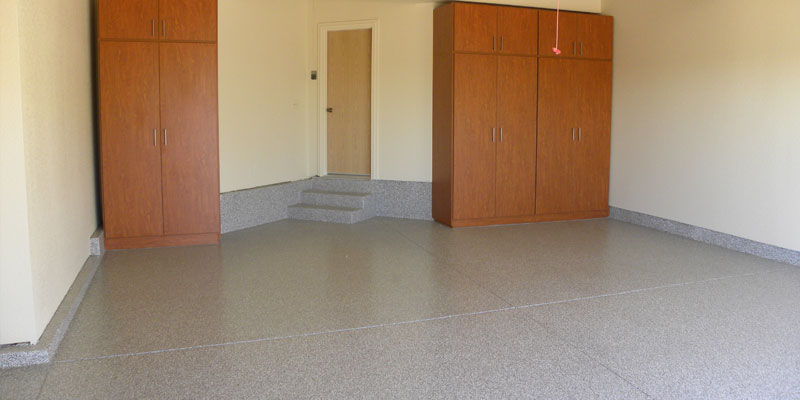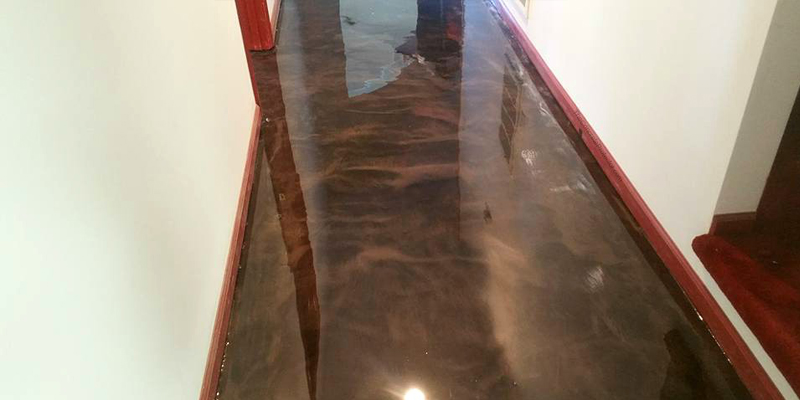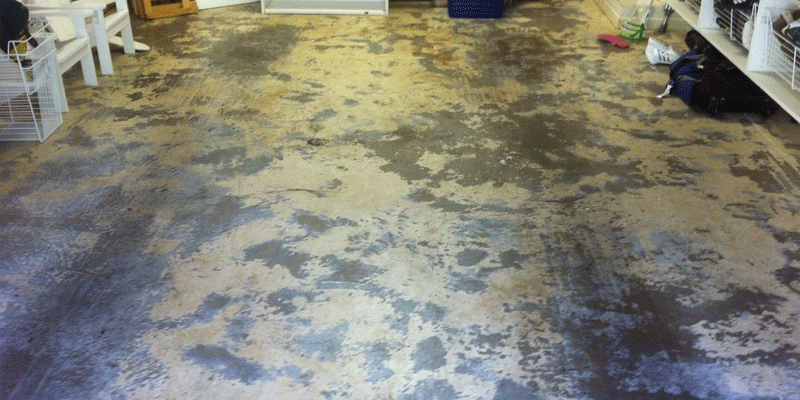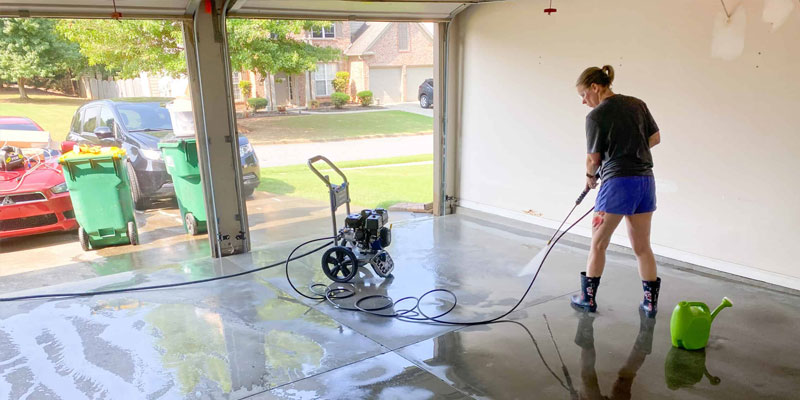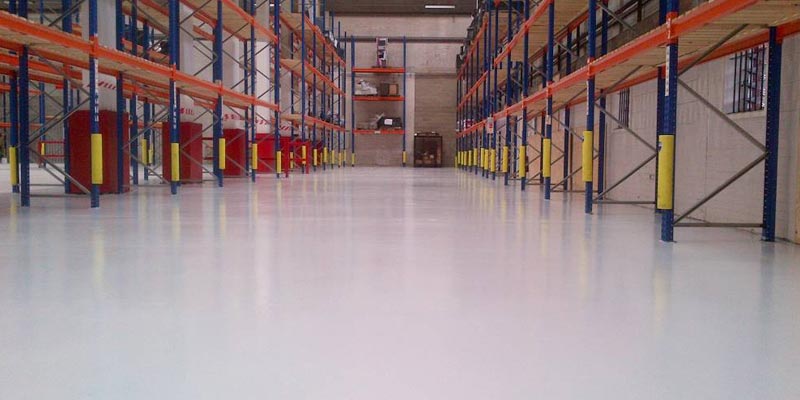Floor Sealers 101: Most Common Sealers
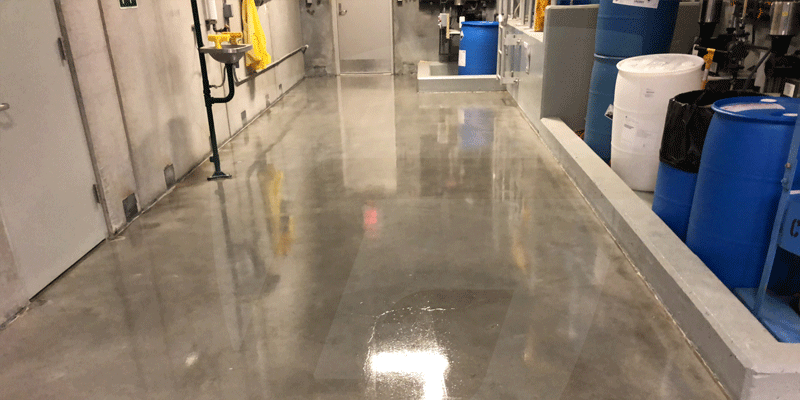
Does your floor get a lot of wear and tear? If so, you might want to consider sealing it. Floor sealing is a great way to protect your floors from dirt, water, and other damage.
There are many different floor sealers on the market, so how do you know which one is right for you? This article will start by covering the most fundamental information on floor coating sealers before discussing the most common types of floor sealers and their pros and cons.
What is a Floor Sealer?
A floor sealer is a clear or tinted coating applied to a floor to protect it from dirt, water, and other damage. Floor sealers can be made from various materials, including acrylics, polyurethanes, urethanes, and epoxies.
Floor sealers are available in both water-based and solvent-based formulations. Water-based sealers are typically less toxic and easier to clean up than solvent-based sealers. However, they may not be as durable as solvent-based sealers. Solvent-based sealers provide better protection against staining and fading, but they can be more difficult to apply evenly.
There are two main types of floor sealers: penetrating and surface. Penetrating sealers are designed to penetrate into the floor, where they form a protective barrier against damage. Surface sealers form a protective layer on top of the floor.
Penetrating sealers are typically more durable than surface sealers, but they can be more difficult to apply evenly. Surface sealers are easier to apply evenly, but they may not last as long as penetrating sealers.
The most important factor to consider when choosing a floor sealer is the type of floor you have and the level of protection you need. For example, if you have a concrete floor, you will need a different type of sealer than if you have a tile floor.
Top Types of Floor Sealers
1. Penetrating Sealers
Penetrating sealers are designed to penetrate into the floor, where they form a protective barrier against damage.
Penetrating sealers are typically made from silicone, epoxy, or polyurethane. They provide good protection against staining and fading, but they can be more difficult to apply evenly.
2. Surface Sealers
Surface sealers form a protective layer on top of the floor. Surface sealers are typically made from acrylic, urethane, or polyurethane. They are easier to apply evenly than penetrating sealers, but they may not last as long.
3. Water-Based Sealers
Water-based sealers are typically less toxic and easier to clean up than solvent-based sealers. However, they may not be as durable as solvent-based sealers.
Water-based sealers are typically made from acrylic or urethane. They provide good protection against staining and fading, but they can be more difficult to apply evenly.
Customization and Design Options for Floor Coating Sealers
Once you’ve decided on the type of floor sealer you need, you can start thinking about customization and design options. Floor coating sealers are available in a variety of colors, so you can choose a color that matches your décor or goes with the theme of your event.
You can also add a logo or other design to your floor coating sealer. This is a great way to promote your business or brand.
Floor coating sealers are also available in clear formulations, which allow the natural beauty of your floors to shine through.
When it comes to design, the sky’s the limit. You can choose from a variety of colors, patterns, and even textures to create a unique look for your floors.
Clear floor coating sealers are also available, which allow the natural beauty of your floors to shine through.
How Do I Know if a Floor Sealer is Right for Me?
The best way to decide if a floor sealer is right for you is to consult with a professional. A professional can help you choose the right type of floor sealer for your needs and can even provide a custom design that matches your décor.
If you’re not sure whether you need a floor sealer, here are some things to consider:
-Do you have a concrete floor? If so, you will need a penetrating sealer.
-Do you have a tile floor? If so, you will need a surface sealer.
-Do you have a wood floor? If so, you may be able to get by with just a clear coat of polyurethane.
Should I DIY or Hire a Professional Floor Coating Technician?
Applying a floor coating sealer is not a difficult task, but it is important to do it correctly. If you are not confident in your ability to apply the sealer evenly, you should hire a professional.
A professional floor coating technician will have the necessary equipment and experience to apply the sealer evenly and prevent streaks or uneven patches. They will also be able to advise you on the best type of sealer for your needs and can even provide a custom design that matches your décor.
Final Thoughts
Floor coating sealers are a great way to protect your floors from dirt, water, and other damage. There are numerous types of floor sealers, so you can choose the one that best suits your needs. You can also customize your floor sealer with color, pattern, or design.
Whether you need a durable sealer for a high-traffic area or a decorative sealer for an event space, a floor coating sealer is right for you.

